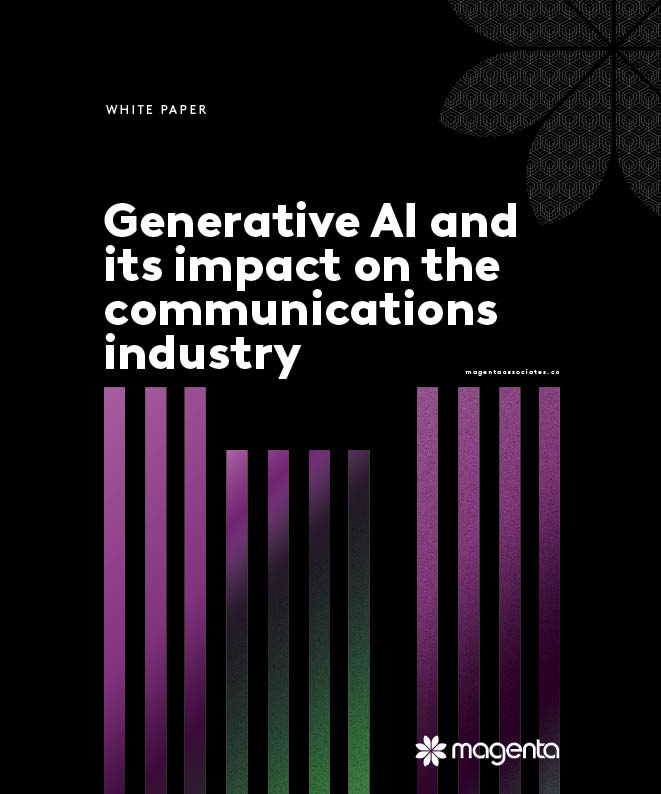ChatGPT and its competitors present both immense challenges and opportunities for the communications industry. These tools have the potential to revolutionise the way content is created, edited, and disseminated, but they also raise significant concerns about issues like intellectual property, copyright, standardisation, automation of labour, and ethical and legal dilemmas.
Professional content writers in the communications sector have long been responsible for producing a diverse array of texts across various platforms and contexts. Until recently, it was taken for granted that these texts would be crafted by humans rather than artificial intelligence.
However, the emergence of ChatGPT has sparked speculation that AI might play an increasingly central role in content creation. Yet, as is often the case with game-changing technologies, the speculation surrounding what generative text AI can achieve tends to overshadow its actual applications.
ChatGPT research project
Last year we published a white paper that discussed the impact of generative AI on the communications industry, in which a handful of experts shared their opinions.
We are taking our work to the next stage by embarking on a project with the University of Sussex that will explore in much greater depth how ChatGPT is impacting the communications industry. This will be one of the first UK studies of its kind as we aim to gather and analyse a wealth of quantitative and qualitative information.
Take the survey:
Generative Text AI and the Communications Industry: Realities vs the Hype
The project aims to delve deeper into the impact of ChatGPT by asking essential questions, such as:
- How are content writers currently integrating ChatGPT into their workflows?
- How are employers of content writers addressing the challenges posed by ChatGPT?
- What changes might we expect in terms of industry practices, codes of conduct, and company policies?
- How can AI researchers effectively contribute to shaping ethical and socially responsible uses of generative text tools in the communication industry?
It will be led by Dr. Tanya Kant, senior lecturer in media and cultural studies (digital media), School of Media, Arts and Humanities at the University of Sussex.
Methodology
This project will employ a comprehensive methodology that involves surveying and interviewing professional content writers working in the communication and PR industries. By adopting both qualitative and quantitative approaches, we aim to gain a holistic understanding of how ChatGPT is currently being utilised within the field.

The research will commence with a scoping study that leverages Magenta’s extensive network to collect insights into content writers’ opinions, current usage of ChatGPT, and existing workplace expectations and policies.
After co-creating and piloting a qualitative survey and a series of pilot interviews, Magenta Associates, in collaboration with Dr. Kant, will expand the study to include a wider pool of participants, including content writers, digital marketing professionals, marketing directors, and PR agency employers. This broader approach will help us uncover the full spectrum of uses and potential misuses of ChatGPT on a larger scale.
Project outputs
The data gathered through interviews and surveys will serve as the foundation for generating new knowledge about how generative AI tools are being integrated, legitimised, or questioned in the communication sector. We also hope to produce a best practice framework for businesses to be able to adapt and use for their own needs.
Take the survey
Generative Text AI and the Communications Industry: Realities vs the Hype
Follow our progress
For updates on this project, check our blog and follow us on LinkedIn. If you have any questions, email me on greg@magentaassociates.co.









